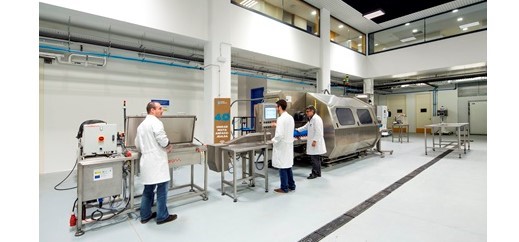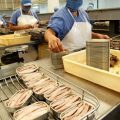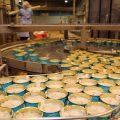Although some may think that the canning industry seems to be stuck in the past, nothing could be further from the truth. The current situation has increased the commitment to innovation based on industry 4.0, circular economy, biotechnology and aquaculture.
One of the key elements focuses on processes, with the adoption of automated and intelligent systems, as in the case of products. “The sector uses these levers as the axis of competitiveness, and has served to become the second world power, and first in specialties and quality,” says Juan M. Vieites Baptista de Sousa, secretary general of the National Association of Canned Fish Manufacturers (Anfaco-Cecopesca).
This modernization process is not new. The digitalization of the sector began years ago through the incorporation of automated and robotized systems, as well as new control and management systems for all manufacturing and non-manufacturing aspects of the company. The industry is currently immersed in the adoption of advanced sensor systems and intelligent management of all the data generated in order to implement artificial intelligence tools.
“At the moment, the canning sector is facing with great intensity the modernization and updating of its processes and products towards three fundamental axes: the integral digitalization of its processes; the commitment to the circular economy and sustainability; and the development of new products adapted to the needs of the consumer,” Vieites emphasizes. For the secretary general of the National Association of Canned Fish Manufacturers, this is an important effort with which Spain seeks to consolidate its position as a world leader in the production of canned fish and seafood.
Another major source of innovation in this sector is the technology centers. Anfaco-Cecopesca carries out an average of 80 R&D&I projects per year and generates an important multiplier effect on the development of the marine and food industry. Clear examples of this innovation can be found in the European Spectunael project or in Foodsens, which are developing and validating new sensor technologies to maximize food safety response. Also in the field of healthy food is the Tecnomifood project, focused on the development of functional foods and personalized nutrition.
“We are moving towards ‘ready-to-eat’ or ‘ready-to-cook’ solutions, easy to consume and prepare, focused on a consumer who is increasingly aware of healthy eating and the environment,” concludes the secretary general of the employers’ association.















